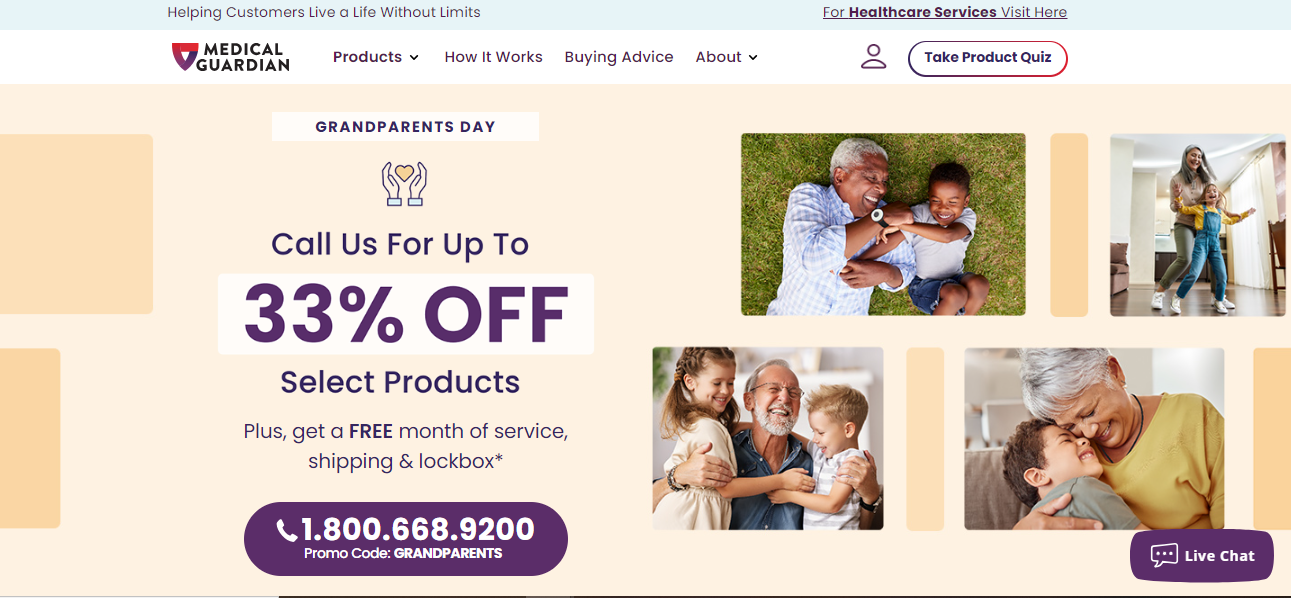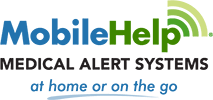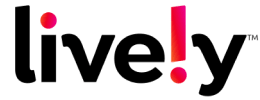Top 10 Best Medical Alert Systems for 2023
A medical alert system gives you access to unlimited support wherever and whenever—if you have a fall at home alone or experience an emergency while running errands. But with so many different systems on the market, how do you know which one is right for you and your lifestyle?
1.Medical Guardian
Medical Guardian provides monthly, quarterly, or annual subscription options, and offer add-on services, such as fall detection, at an extra cost.
- Pricing : $29.95-$44.95
- No contracts or hidden fees
- Long-lasting battery life—up to 168 hours
- Offers automatic emergency response in case of a fall
Score 9.8/10
2. ADT Health
ADT Health has access to several US-based control centers and protects around six million users. They offer three service tiers, each with flexible payment options and a permanent price lock guarantee.
- Pricing : $29.99-$39.99
- Monthly costs are guaranteed not to increase
- Free shipping, activation, and equipment
- Offers a six-month money-back guarantee
Score 9.8/10
3. MobileHelp
MobileHelp’s devices have several valuable add-on services, such as MD Live and Mobile Vitals, which help seniors take charge of their health and maintain their independence.
- Pricing: $24.95-$64.95
- Quick response times (1-15 seconds on average)
- Free 30-day trial period
- Access to telehealthcare features
Score 9.7/10
4. One Call Alert
One Call Alert showcases a range of at-home and portable devices that are budget-friendly and easy to set up. The service’s Mobile Double plan gives users a good deal by bundling two on-the-go devices for the price of one ($44.95/month).
- Pricing : $19.95-$44.95
- Competitive starting price
- Devices are easy to set up
- Ideal for two people using the same system
Score 9.6/10
5. Life Alert
Life Alert is known for its famous TV ad “Help! I’ve fallen and I can’t get up!” They’ve been offering at-home and remote monitoring since the 1980s.
- Pricing : $49.95-$89.95/month
- Devices are covered by a lifetime warranty
- Mobile button has an industry-leading 10-year battery life
- Sensitive speakers with audio monitoring capabilities
Score 9.5/10
6.UnaliWear
UnaliWear’s Kanega Watch is a smartwatch-like device that connects via cellular and WiFi networks. It offers 24/7 monitoring, fall detection, GPS tracking, and medication reminders. This watch is more expensive than other devices, but it’s quick and easy to set up.
- Pricing : $69.95
- Customer service onboarding
- Integrated fall detection
- Pinpoint location detection
Score 9.6/10
7. LifeFone
LifeFone has been in business for over 50 years. Their packages start at $29.95, with fall detection offered at an additional $5 per month. The initial subscription price covers the equipment’s cost.
- Pricing : $29.95-$49.95
- Price lock guarantee
- Daily check-ins
- Long-range at-home devices
Score 9.8/10
8. Lively
Lively’s systems are fit for active seniors who spend a lot of time outside their homes. Their devices, ranging from flip phones and smartphones to wearable medical alert equipment, provide on-the-go functionality and have cellular and WiFi connectivity options.
- Pricing : $24.99-$149.99
- Devices designed to be senior-friendly
- Customizable health and safety packages
- No long-term contracts or cancellation fees
Score 9.6/10
9. Medical Alert
Medical Alert has an in-home system with a base unit and waterproof help button, wearable on your neck or wrist. There is also an on-the-go option with GPS and a help button, giving you more freedom to move around your house.
- Pricing : $27.95-$47-95
- Easy-to-use system
- Help buttons are lightweight and waterproof
- No upfront activation fees
Score 9.7/10
10.Lifeline
Lifeline (formerly Phillips Lifeline) has response centers throughout the US and Canada, with a team of specially trained emergency operators available around the clock. This provider also gives clients access to the Lifeline Cares application, which notifies families of any important information or updates about the user’s care
- Pricing : $60-$80/Session
- 6,000+ therapists specializing in Christianity-based counseling
- Accessible via website or the free app
- 24/7 online access to a discreet “room”
Score 9.5/10
HOW TO CHOOSE BEST MEDICAL ALERT SYSTEM?
When considering the selection of a medical alert system, it is crucial to assess various factors in order to choose the best option that caters to individual needs and ensures peace of mind.
Firstly, one must evaluate the system’s reliability by thoroughly researching customer reviews and ratings online. This will provide insight into the experiences others have had with different models and brands, helping potential users make an informed decision.
Secondly, compatibility with personal preferences and lifestyle should be taken into account. Some systems offer wearable devices such as necklaces or bracelets, while others include built-in sensors throughout the home for comprehensive coverage. It is essential to consider which type would suit daily routines and comfort levels best. Next, analyzing the features offered by each system is crucial for making a wise choice. Look for key elements like fall detection technology, two-way communication capabilities with emergency personnel, GPS tracking options for outdoor activities or wandering prevention mechanisms if applicable—these traits can greatly enhance safety measures in case of an emergency situation arising unexpectedly outside one’s residence.
Additionally, considering cost implications is significant when selecting a medical alert system; therefore comparing pricing plans along with any additional fees or charges becomes essential during this process.{keyword} Lastly yet importantly involves assessing customer service quality provided by each company under consideration: determining whether assistance is available 24/7 from knowledgeable professionals who respond promptly can mean all difference in times of distressing situations where immediate help may be required urgently.




















